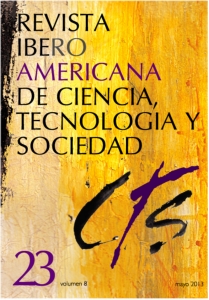Living labs
The Portuguese experience
DOI:
https://doi.org/10.52712/issn.1850-0013-649Keywords:
user-driven open innovation, innovation stakeholders, innovation policy, human smart citiesAbstract
The implementation of Living Labs in Portugal started in the 90’s, and since then it has played a central role in the socio-economic development of the country. This article aims at describing the current status of innovation activities in Portugal, with a focus on both strengths and weaknesses and the need for new approaches that can lead to more open innovation and a greater proximity to citizens. The successful uptake of this new view on innovation is hinged on the need to identify the current stakeholders and the way they act during the process of implementation. Through the analysis of Portuguese Living Labs, which have become a serious reference in the socio-economic development of the country, it is possible to extract recommendations in order to promote a more open, participatory, trusting and healthier society.
Downloads
References
BERGVALL-KAREBORN, B.; HOLST, M.; SALLSTROM, A. e STAHLBROST, A. (2010): Race to Scale – FormIT – users as catalysts for innovative IT solutions, Luleå Grafiska.
CAMPOLARGO, M. (2012): The winners of tomorrow propelling Smart Cities through Future Internet, Aalborg.
FARRALL, H. (2012): Promoting, Innovating and Financing Urban Resilience: A living lab experience, Sixth Urban Research and Knowledge Symposium.
GUZMAN, J.; MERZ, C.; NAVARRO, M. e SHAFFERS, H. (2010): Living Labs for Rural Development: Results from the C@R Integrated Project, TRAGSA e FAO, Madrid.
IAPMEI (2011): “Encontros para a Competitividade”, 1ª Sessão de Trabalho sobre Living Labs. Instituto de Apoio às Pequenas e Médias Empresas e à Inovação, I.P. IAPMEI, Lisboa.
MOLINARI, F. (2011): “Best practices Database for Living Labs: Overview of the Living Lab approach”, Living Lab Best Practice Database Specification, ALCOTRA Innovation.
OLIVEIRA, Á. (2011): Open Innovation for Regional Development, International Strategies for Future Regional Development through Open Innovation, Tampere, Finland.
OLIVEIRA, Á. (2011): Internationalizing ENoLL: The Case of Brazil, eChallenges 2010 Conference, Warsaw, Polônia, 27-29 outubro 2010.
OLIVEIRA, Á. (2011): The European Network of Living Labs, Fostering EU-Latin America ICT Policy Dialogue, Brussels.
OLIVEIRA, Á. (2012): Estratégias de Inovação na Europa, Lisboa.
OLIVEIRA, Á. (2013): From Smart Cities to Human Smart Cities, Lisboa.
OLIVEIRA, Á. (2013): As PMEs no Horizon 2020, Lisboa.
SCHUMACHER, J. (2011): Living Labs Definition, Harmonization Cube Indicators & Good Practices, Alcotra Innovation project.
STAHLBROST, A. e HOLST, M. (2012): The Living Lab Methodology Handbook, Luleå Grafiska.
Downloads
Published
How to Cite
Issue
Section
License
Copyright (c) 2024 CC Attribution 4.0

This work is licensed under a Creative Commons Attribution 4.0 International License.
All CTS's issues and academic articles are under a CC-BY license.
Since 2007, CTS has provided open and free access to all its contents, including the complete archive of its quarterly edition and the different products presented in its electronic platform. This decision is based on the belief that offering free access to published materials helps to build a greater and better exchange of knowledge.
In turn, for the quarterly edition, CTS allows institutional and thematic repositories, as well as personal web pages, to self-archive articles in their post-print or editorial version, immediately after the publication of the final version of each issue and under the condition that a link to the original source will be incorporated into the self-archive.











